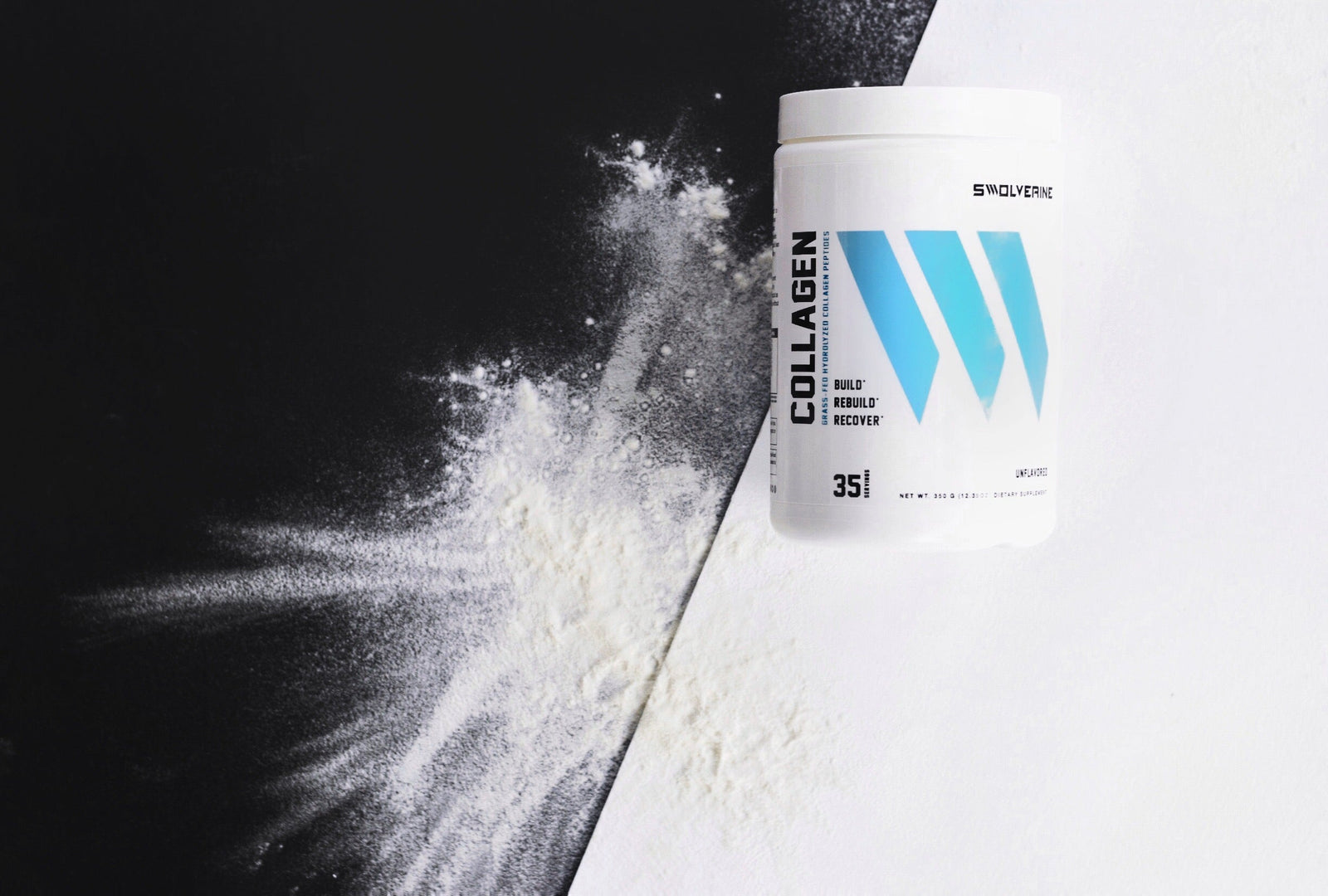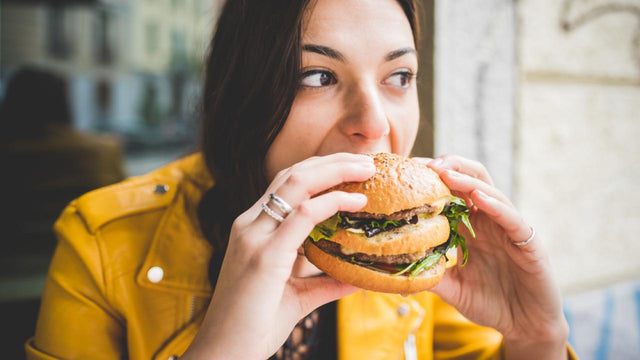Collagen isn’t just another trendy buzzword in the world of wellness—it’s the most abundant protein in the human body, making up nearly one-third of your total protein mass. It’s the glue that holds you together, literally. From glowing skin and healthy joints to strong bones and resilient tendons, collagen plays a vital role in keeping your body functioning—and looking—its best. But here’s the kicker: your body’s natural collagen production begins to decline in your late 20s, leading to common signs of aging like wrinkles, joint pain, and slower recovery from exercise.
That’s where collagen protein supplements come in.
Whether you're an athlete pushing your body daily, someone recovering from injury, or just trying to age gracefully, understanding the different types, sources, and benefits of collagen can change the way you approach health from the inside out. In this article, we break down everything you need to know—from the types of collagen and where they come from, to how they’re made and why hydrolyzed peptides are your best bet for optimal results.
What Is Collagen Protein?
Ever touched a baby’s cheek? It’s the softest skin you’ve ever felt on the cutest, tiniest little human. Now compare that to grandma’s cheek (no offense, g-ma) — it definitely doesn’t feel the same. So, what gives?
Collagen.
Collagen is a naturally produced, fibrous protein that plays a major role in maintaining the structural integrity of the body. It’s the most abundant protein in mammals — accounting for nearly one-third of total body protein (Ricard-Blum, The American Journal of Pathology).
As we age, our body’s ability to produce collagen declines, leading not only to visible signs like wrinkles and sagging skin but also deeper issues such as weakened ligaments, brittle bones, and compromised tissue elasticity.
Making the Connection: The Structural Importance of Collagen
Collagen is essentially the scaffolding of the human body. It provides mechanical stability, elasticity, and strength to the skin, bones, tendons, ligaments, and connective tissues (Shoulders & Raines, Annual Review of Biochemistry).
To visualize its structure, think of a rope you'd use in a CrossFit gym. That rope is made of intertwined fibers called macrofibrils, which themselves are formed from smaller microfibrils. Similarly, collagen is made up of triple-helical polypeptide chains that reinforce each other for durability and resistance to tension.
When you overuse that gym rope, it frays. Without reinforcement (aka, more rope or more collagen), it breaks. The same goes for your ligaments, tendons, and connective tissues — they weaken over time if not replenished with dietary collagen or stimulated through proper nutrient intake.
Do Humans Naturally Produce Collagen?
Yes — and quite a bit of it. In your younger years, your body’s collagen production is highly efficient, helping keep your skin smooth, joints strong, and tissues resilient.
But starting in your late 20s to early 30s, natural production declines. Factors such as UV radiation, smoking, poor hydration, and nutrient deficiencies can accelerate collagen breakdown and reduce its natural synthesis (Proksch et al., Dermato-Endocrinology).
Where Does Collagen Protein Come From?
Collagen can be consumed in three primary ways:
1. Endogenously (Naturally Produced by the Body)
To support natural collagen synthesis, your body needs specific nutrients such as vitamin C, zinc, proline, glycine, and copper. Without these, your body struggles to produce collagen even if you’re otherwise healthy.
2. From Food Sources
Certain foods contain or support collagen production: bone broth, chicken skin, beef tendons, egg whites, and fish skin. See more in our 5 Collagen-Rich Foods article.
3. Through Collagen Protein Supplements
Collagen protein supplements, often in the form of hydrolyzed collagen peptides, offer an efficient, bioavailable way to boost collagen levels in your body. Studies show that daily collagen supplementation improves skin elasticity, reduces joint pain, and supports tendon repair (Zague et al., Journal of Cosmetic Dermatology).
Hydrolyzed collagen is broken down into smaller peptides, making it easier to absorb and more effective at stimulating the body's own collagen-building processes.
Collagen isn’t just about glowing skin and youthful appearances — it’s about strength, elasticity, and injury prevention from the inside out.
Whether you’re a performance athlete, recovering from an injury, or looking to age gracefully, collagen plays a non-negotiable role in maintaining your body's resilience and structure.
Support your body’s natural production with the right nutrients. Eat collagen-rich foods and/or supplement with hydrolyzed collagen peptides. Prioritize collagen starting in your late 20s to get ahead of age-related decline.
Want help writing a collagen supplement product description, email campaign, or social post next? I got you!

Types of Collagen Peptides
Out of at least 28 known collagen types, there are three primary types that dominate the human body and are essential to support structural, muscular, and joint health: Type I, Type II, and Type III. Together, these three types account for approximately 80–90% of all collagen in the body (Ricard-Blum, Matrix Biology).
Type I Collagen Benefits
Type I collagen is the most abundant and strongest form of collagen in the human body. It is primarily found in:
-
Bones
-
Tendons
-
Ligaments
-
Skin
-
Teeth (dentin)
-
Interstitial (cellular) fluid
Due to its high tensile strength and elasticity, Type I collagen supports skin firmness, hair and nail strength, and bone density. According to Kadler et al., Journal of Cell Science, gram for gram, Type I collagen fibrils are stronger than steel—making it vital for overall durability and structural integrity of connective tissues.
Type II Collagen Benefits
Type II collagen is found predominantly in cartilage and plays a crucial role in joint health and mobility. Its fibrils are smaller in diameter than those of Type I, allowing more flexibility, especially in load-bearing joints such as the knees, hips, and shoulders (Eyre et al., Biochemical Journal).
Additionally, Type II collagen is present in ocular tissues, particularly in regions vulnerable to retinal detachment and tears, making it important for eye structure and function (Fujikawa et al., Investigative Ophthalmology & Visual Science).
Type III Collagen Benefits
Type III collagen is found alongside Type I and is critical for internal organ structure. It organizes reticulin fibers and contributes to:
-
Blood vessel walls
-
Intestinal lining
-
Muscle tissue
-
Liver and other soft organs
It helps support the structure of organs by forming a reticular network, especially during tissue growth and wound healing (Nishiyama et al., The Anatomical Record).
What Type of Collagen Protein Is the Best?
The short answer? All three.
While each type serves unique and essential roles, the body thrives when all three are present. That’s why multi-source collagen supplements are preferred, as they offer a more comprehensive approach to supporting whole-body health.
For example, Swolverine’s Collagen Protein combines bovine (Type I & III), chicken (Type II), and marine collagen, giving you full-spectrum support in a single daily scoop.
The Main Sources of Collagen Peptides
Yes, collagen comes from animals, and no — it’s not vegan.
Here’s a breakdown of collagen types by source:
-
Bovine (cow): Rich in Type I and Type III
-
Chicken sternum cartilage: High in Type II
-
Marine (fish skin and scales): Mostly Type I, with excellent absorption
-
Porcine (pig): Contains Type I and some Type III
If you're seeking complete collagen support for your skin, joints, gut, muscles, and bones, choosing a multi-type collagen peptide supplement is the most effective route.
Interested in learning how collagen compares to your post-workout shake? Check out the Related Article: Is Collagen Better Than My Post Workout Shake?
Where Does Collagen Protein Come From?
Beef Collagen (Bovine Collagen)
Hydrolyzed bovine collagen is one of the most common and effective sources of collagen. It’s derived from cow hides, primarily sourced from U.S.-based, grass-fed cattle. Bovine collagen is rich in Type I and Type III collagen, which are the most abundant in the human body and support:
-
Skin elasticity
-
Nail and hair strength
-
Tendon and ligament resilience
-
Bone and joint health
Bovine collagen is a top choice for anyone focused on overall wellness and structural support.
Chicken Collagen
Collagen derived from chicken cartilage, bones, eggshell membranes, and connective tissues contains primarily Type II collagen, known for:
-
Supporting joint health and mobility
-
Helping repair cartilage damage
-
Reducing joint discomfort
Chicken collagen is especially effective for athletes or those suffering from joint degeneration or stiffness (Xu et al., Journal of Agricultural and Food Chemistry).
Marine Collagen (Fish Collagen)
Marine collagen is sourced from fish bones, skin, and scales, and is rich in Type I collagen with high levels of hydroxyproline, an amino acid critical for skin regeneration.
Studies suggest marine collagen has a smaller peptide size, making it highly bioavailable and easily absorbed (Nakashima et al., Marine Drugs). However, while absorption may be faster, marine collagen is not necessarily superior and more research is needed to confirm long-term benefits.
Is Collagen Protein Vegetarian or Vegan?
Unfortunately, collagen protein is not vegetarian or vegan, as it's derived from animal sources. Although plant-based collagen "boosters" exist, they do not contain actual collagen.
Vegetarian diets have been shown to reduce natural collagen synthesis, potentially accelerating aging signs (Mangels et al., The American Journal of Clinical Nutrition).
For vegans, focus on boosting collagen production through:
-
Vitamin C & A
-
Silica & Zinc
-
Ellagic acid and antioxidants
RELATED ARTICLE: 5 Foods 'Supposed' to Help With Natural Collagen Production
How to Get More Collagen Protein
While food sources like bone broth, sardines, and chicken skin are great, the most efficient and bioavailable method is collagen supplementation.
Hydrolyzed collagen peptides (like those in Swolverine’s Collagen Protein) have been shown to:
-
Improve skin hydration and elasticity
-
Increase ligament strength and flexibility
-
Support tendon and joint repair
(Proksch et al., Skin Pharmacology and Physiology)
Is Collagen Protein a Complete Source of Protein?
No, collagen is not a complete protein. It lacks sufficient amounts of tryptophan, one of the nine essential amino acids. But collagen still provides a unique profile of glycine, proline, and hydroxyproline, which are lacking in modern diets yet crucial for:
-
Skin and joint elasticity
-
Gut lining integrity
-
Immune modulation
Think of collagen as a specialized structural protein—it complements your diet rather than replaces complete protein sources.
RELATED ARTICLE: What's The Difference Between Complete Vs. Incomplete Proteins?
The Amino Acids in Collagen
Proline (C₅H₉NO₂)
Supports joint health, wound healing, and immune response. Makes up ~19% of collagen.
Lysine (C₆H₁₄N₂O₂)
Essential for calcium absorption and collagen cross-linking. Requires Vitamin C to function properly.
Glycine (C₂H₅NO₂)
Most abundant amino acid in collagen (~33%). Supports brain function, blood sugar regulation, and inflammation control.
Hydroxyproline (C₅H₉NO₃)
Unique to collagen. Crucial for collagen structure and stability.
Other Amino Acids
Includes alanine, arginine, and glutamine for liver detoxification, immune health, and muscle metabolism.
How Collagen Protein Is Made
The collagen manufacturing process includes the following steps:
-
Demineralization & Extraction – Animal hides or bones are processed into gelatin.
-
Enzymatic Hydrolysis – Gelatin is broken down into hydrolyzed collagen peptides, which are easier to digest.
-
Evaporation, Sterilization, & Milling – The final step produces a powdered supplement that dissolves easily and absorbs rapidly.
Swolverine’s Collagen Peptides, for example, use hydrolyzed bovine, chicken, and marine collagen to deliver a triple-type formula with high bioavailability.
Collagen Peptides vs. Collagen Protein – What’s the Difference?
None, really. "Collagen peptides", "hydrolyzed collagen", and "collagen hydrolysate" are all names for the same form of collagen: pre-digested peptides that are easier for your body to absorb and use.
Unprocessed collagen (gelatin) is harder to digest and won’t mix well in liquids. Hydrolyzed peptides dissolve easily and are fully absorbable, making them the go-to for supplements.
Is Oral or Topical Collagen Better?
Topical creams may support surface hydration, but they cannot replace the collagen structure deep within the dermis.
Oral collagen (especially hydrolyzed) is clinically proven to increase skin elasticity and hydration, reduce wrinkles, and stimulate internal collagen production (Shigemura et al., Journal of Agricultural and Food Chemistry).
Oral supplementation is the most effective way to restore collagen levels.
Conclusion: Why Collagen Protein Deserves a Place in Your Daily Routine
Collagen protein is more than a beauty enhancer—it’s a foundational nutrient for joint mobility, skin elasticity, gut health, and total-body structural integrity. While your body naturally produces collagen, age, lifestyle, and environmental stressors can slow that production dramatically. That’s why collagen supplementation isn’t just useful—it’s essential.
From bovine to marine, from Type I to Type III, and from tendon support to smoother skin, the right collagen supplement—especially one made with hydrolyzed peptides for high bioavailability—can help you feel and perform better from the inside out.
Whether you're training hard, recovering from injury, or simply committed to staying vibrant and strong as you age, collagen protein is your secret weapon. Choose wisely, supplement consistently, and support the structure that supports you.













